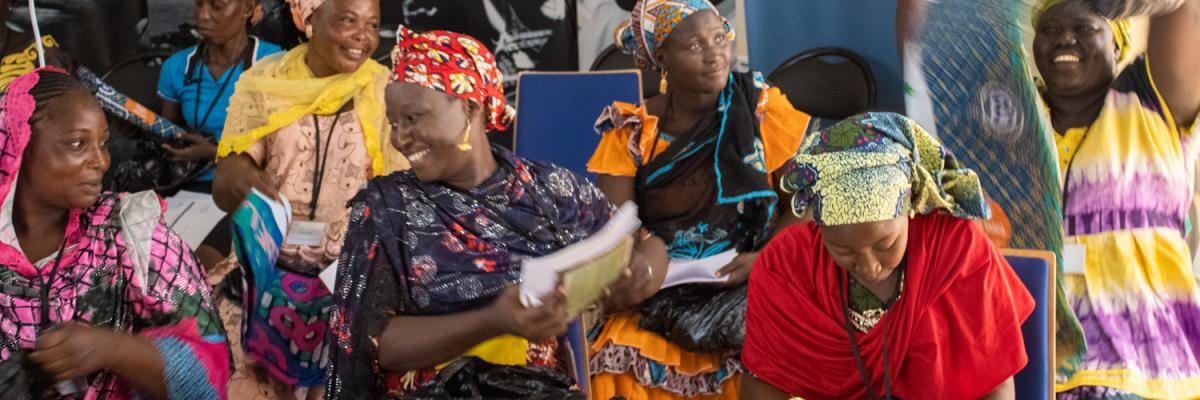
About Outreach
Outreach informs, listens, connects and empowers.
Outreach Informs
Outreach staff are the local spokespeople. They bring news and information about the Court and the proceedings to the communities in local languages, sometimes traveling to the smallest of villages. The information spreads on radio, TV, digital channels, or in informal chats on local markets. Information reaches lawyers, journalists and civil society, online or in person, in words or pictures – photographs of the courtroom and video summaries of the proceedings. Outreach informs victims about the possibility and their right to participate in the proceedings and apply for reparations. Informed communities decide on the best way to engage with the Court.
Outreach Listens
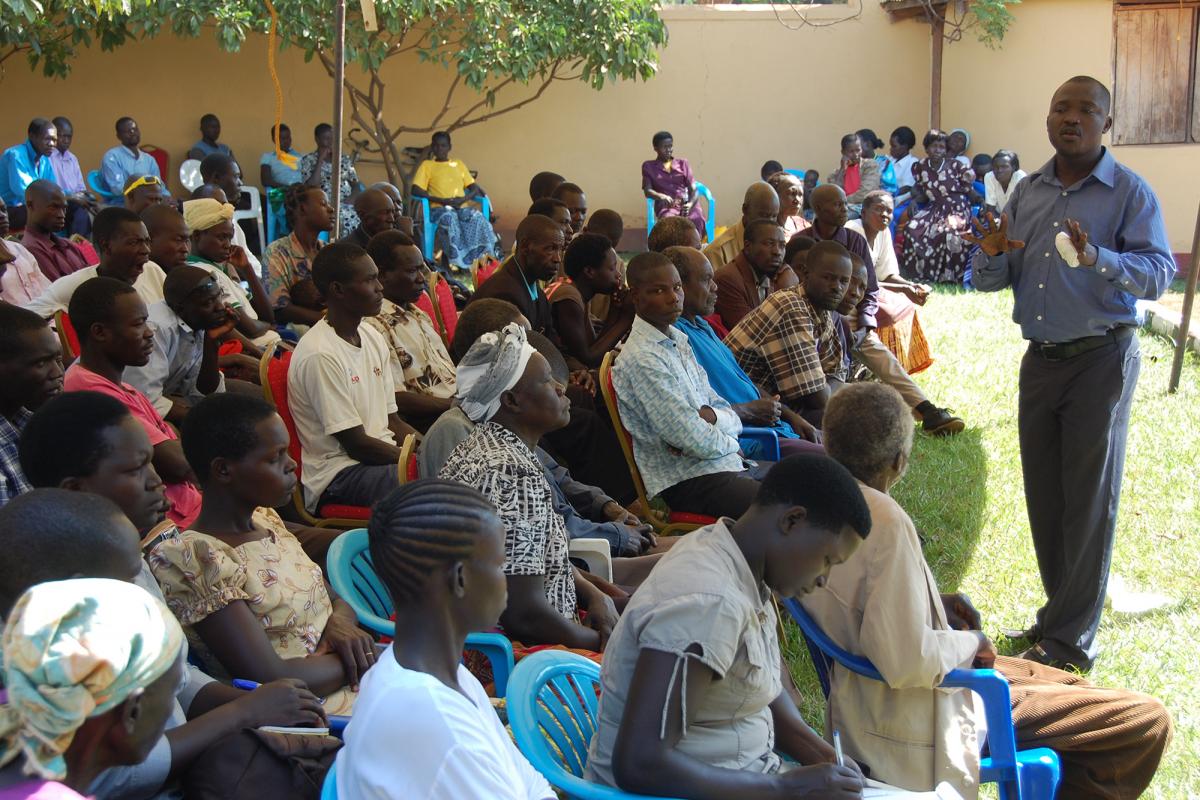
Outreach listens in order to address real questions. The information gathered helps tailor information sessions according to the communities' concerns, taking into account advice from local leaders and NGOs, and cultural sensitivities. The voice of communities, their questions and concerns reach the Court’s top management. Hearing people's stories and their expectations for justice to be done is important. Outreach makes sure their hopes, fears, and disappointments are not forgotten but presented to the world. Accepting all feedback and advice is a daily activity. Sometimes, all it takes is to listen and give voice to people. Sometimes it is enough to empower people with the knowledge that they have a voice and that – yes, someone is listening.
Outreach Connects
Outreach connects the communities with the courtroom making it possible for people thousands of miles away from the Court to still have a view into the proceedings. Outreach staff travels hundreds of kilometres, with generators and beamers in the trunk, using whatever is available - walls, tablecloths even - to show the proceedings to the affected communities, and bring the courtroom to people. Outreach aims to know the communities, build relationships and trust so that the ICC, despite the physical distance, can have a meaningful presence in people's lives.
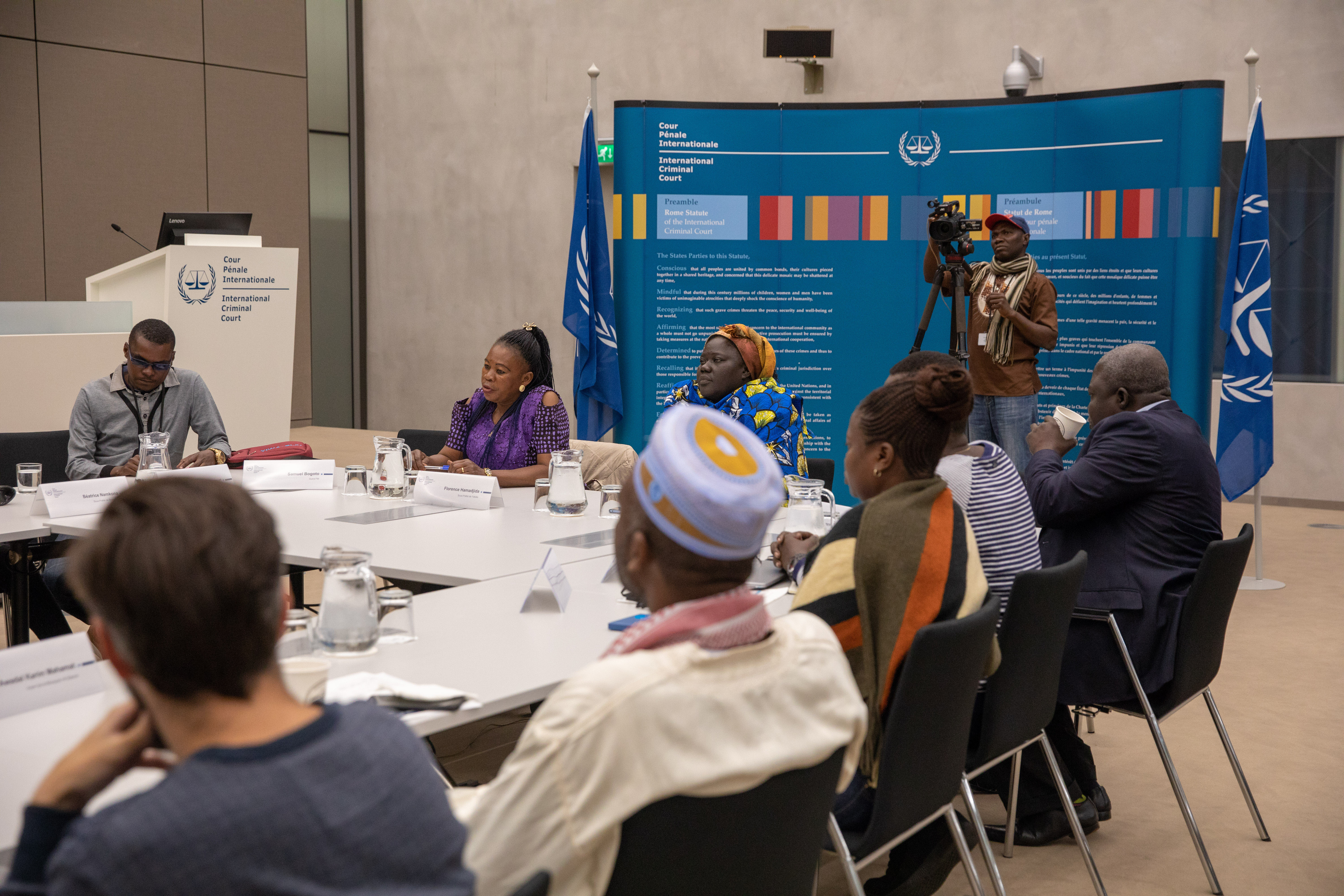
Outreach Empowers
Informed decisions. Having a voice. Forging real connections with the Court. This helps people affected by crimes to see that justice is being done. It helps them know that they can be part of the process. And it is a step towards making that process meaningful, so that justice can be part of closure and the healing process. By promoting access to justice, the ICC aims to empower survivors and entire communities. They should know that this Court is there for them.
The affected communities should know that this Court is there for them.
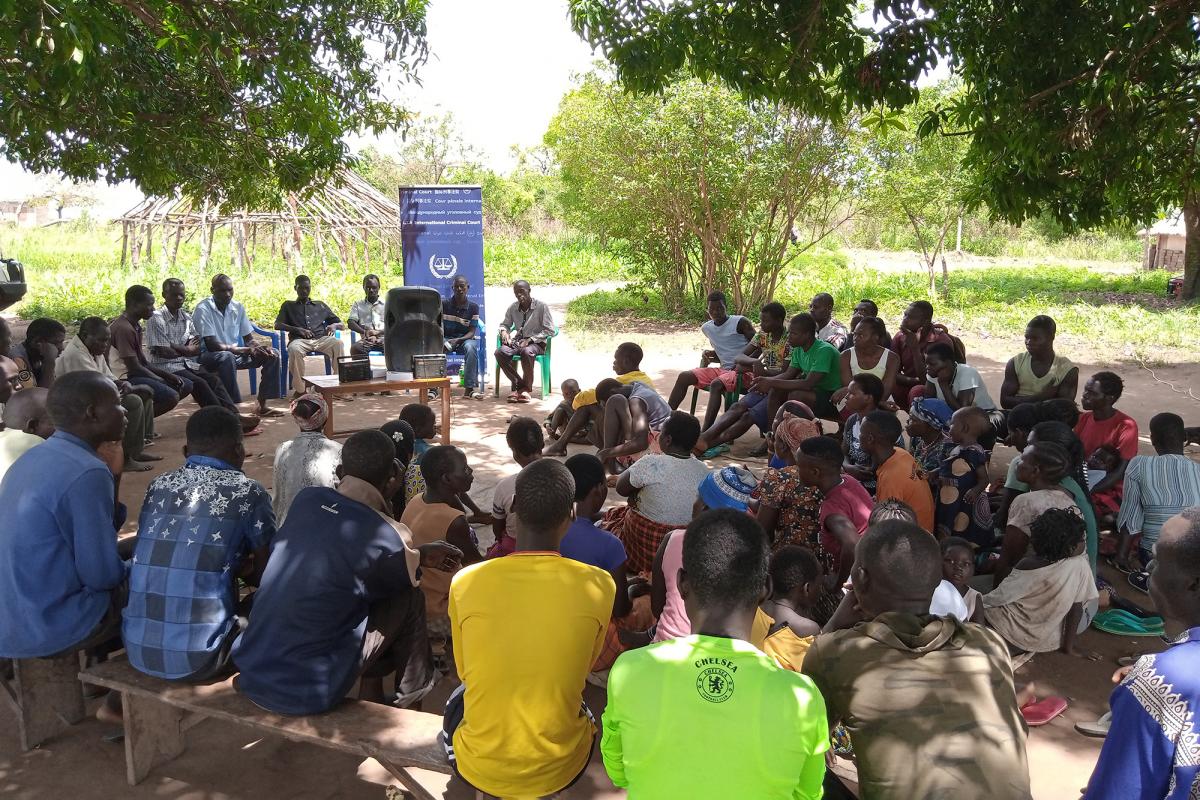
PROGRAMMES
Community program
Outreach holds information sessions for affected communities: community and religious leaders, children and youth, men, women, people with disabilities. Specific needs of each of the groups require different approaches to establish trust and provide support.
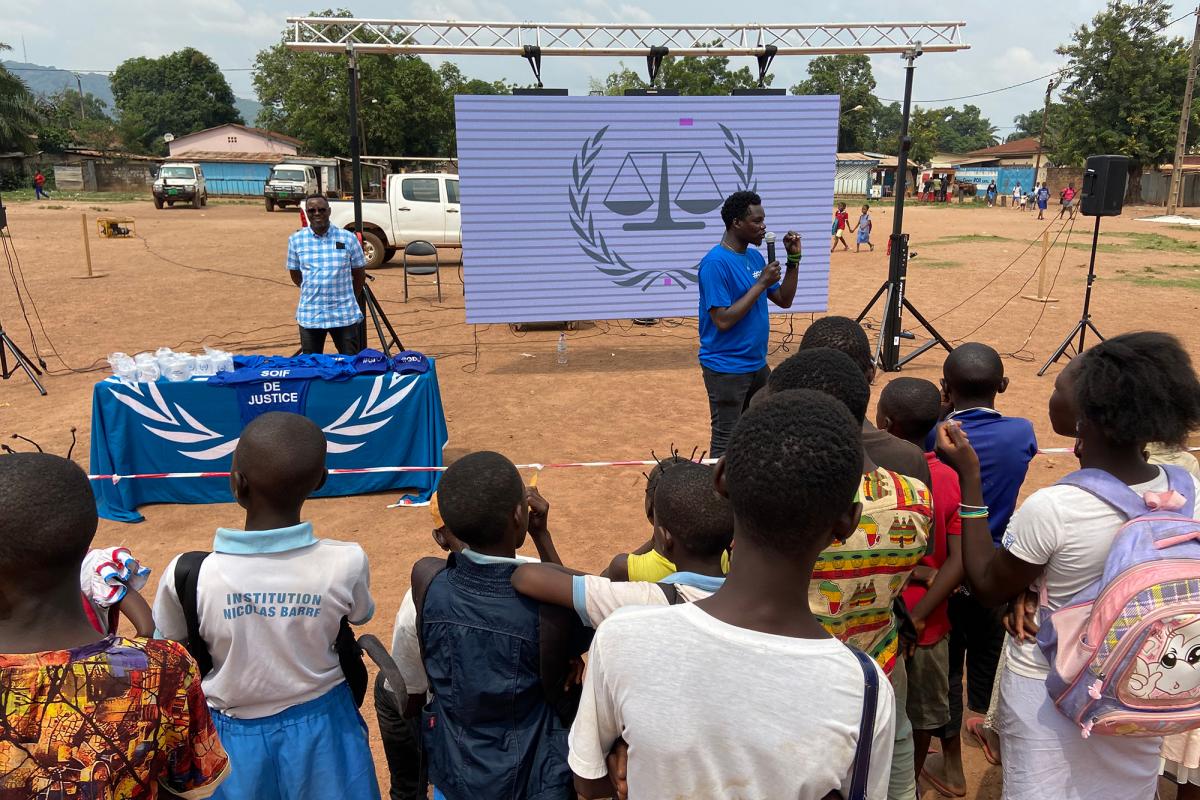
Media program
Media, especially radio and television, help spread information to broader audience. Radio and TV stations, newspapers and news agencies daily broadcast information about the Court in the countries where crimes on trial have been committed. Outreach is organizing information programs and working together with local journalists, combining their expertise and knowledge to provide to the public the most accurate information about the Court’s work.
Legal community program
Those working in the legal profession – Bar associations, judges, magistrates, lawyers – receive information from the Court, strengthen cooperation, increase knowledge, participate in proceedings as counsels, or act as local experts on international justice issues. Through workshops and information sessions, Outreach provides to legal professionals on the national level access to knowledge and experience of colleagues working at the Court.
Academic program
Outreach opens the door for the academic community to a rich database of legal documents, as well as literature on international law and the ICC. It also facilitates lectures and seminars for law students and professors, and encourages international criminal law courses at the law universities, hoping to leave an important legal legacy to the world.
PARTNERS
Outreach partners with media, civil society, international organizations, academia, the legal community and many other organizations and individuals in the situation countries. They remain crucial partners, consultants, focus groups, advocates and channels of communication with the communities especially when face-to-face activities are not possible.